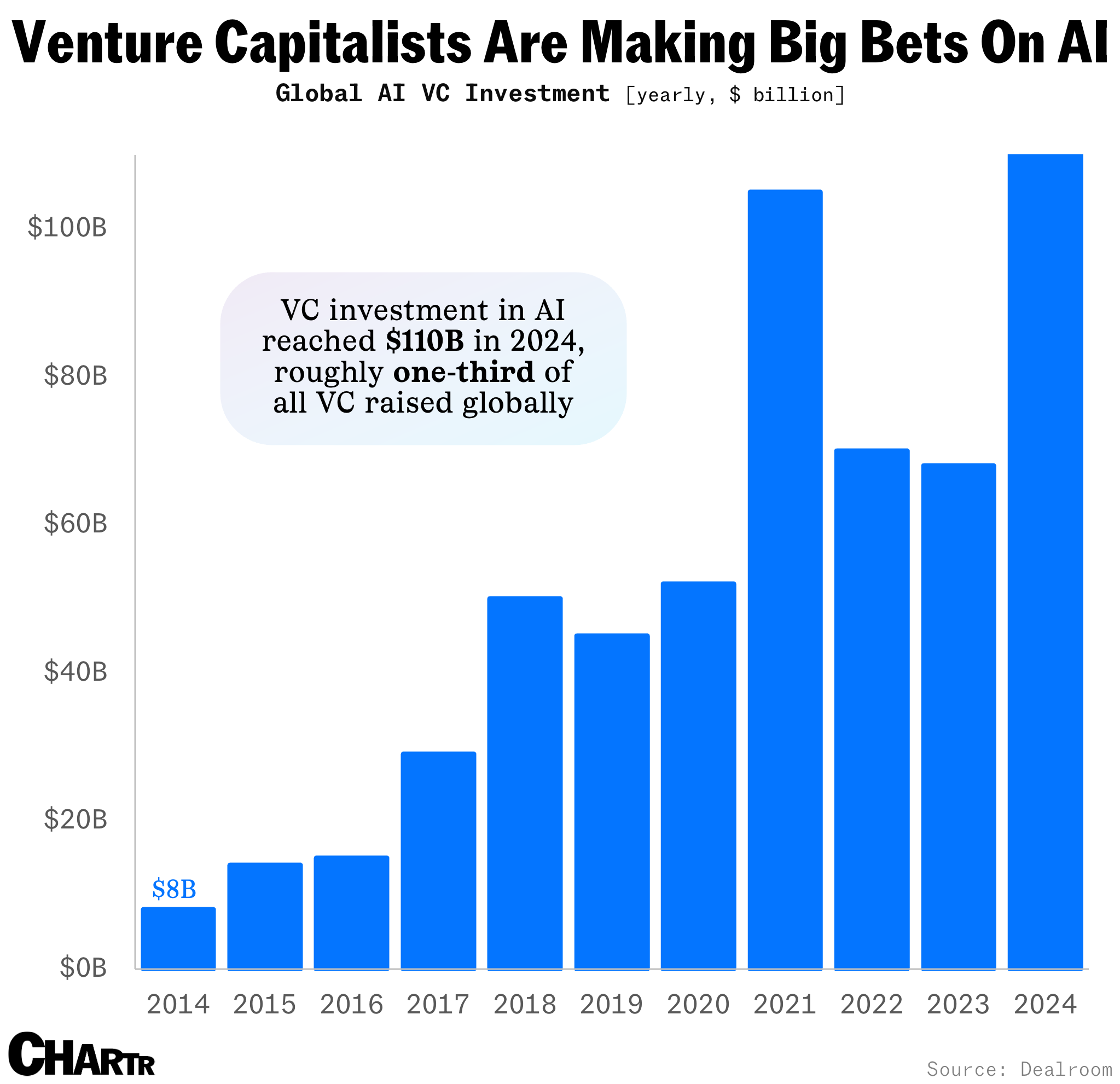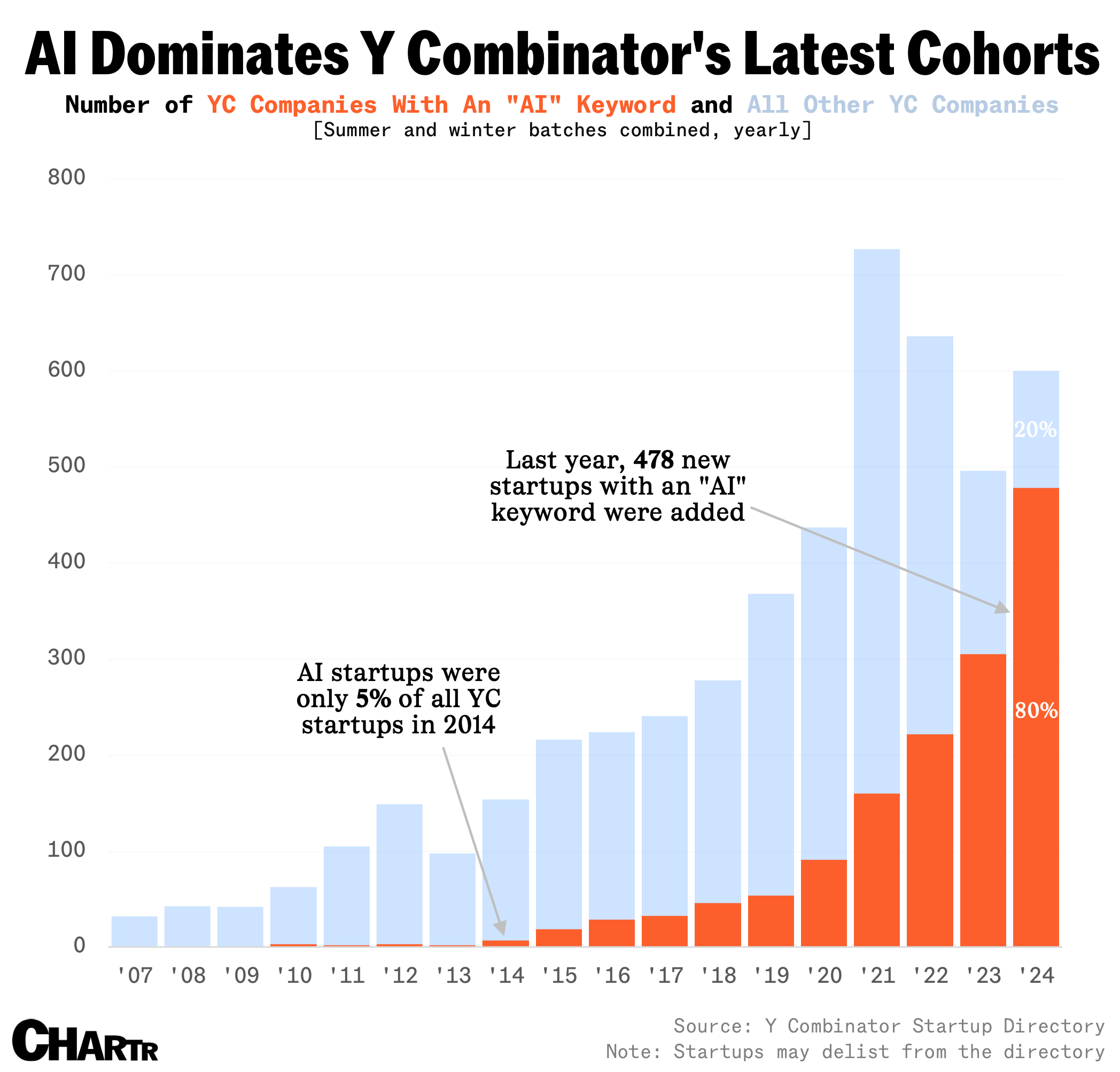Increasingly, the due diligence for getting an ambitious world-changing technology business funded starts with a simple question: how does it use AI?
If the answer is it doesn’t, don’t expect the global gatekeepers of startup capital to go out of their way to write you a check. According to new data out this week from analytics firm Dealroom, the AI funding frenzy continued at pace last year with ~$110 billion pouring into the sector globally, about 33% of the total investment in the entire VC space.
This figure included outsized funding rounds like AI’s poster child OpenAI raking in $6.6 billion and AI data-processing platform Databricks with an even more staggering $10 billion.
Sherwood News
But the boom isn’t just limited to more established, later-stage companies. Even at the very earliest stages of the venture capital funding ladder — seed and pre-seed stages — the omnipresence of AI is staggering.
AI: In everything, everywhere, all at once
Last year we wrote about how Y Combinator — the world’s preeminent startup accelerator that has backed Airbnb, Reddit, and Stripe — was seeing an overwhelming influx of founders and startups working in AI.
Indeed, data from Y Combinator reveals that some 80% of the companies in its Startup Directory last year had “AI” in either the company name or description of what it does. Just five years ago, that proportion was only 15%.
Sherwood News
Clearly, there are multiple factors at play. Some are straightforward:
Some are a bit more cynical, like FOMO, signaling, or playing the odds:
-
VC investors don’t want to miss out on the boom, with some blindly backing almost anything AI-adjacent.
-
Startup founders know that AI is the hot thing now, and are finding ways to incorporate it into their products… no matter what their original product idea was.
Winners and losers
Venture capital investing is inherently a high-risk endeavor. The typical model for a VC fund follows a power law and requires that one or two breakout mega-successes pay for the dozens of failures.
That law will undoubtedly play out again in the AI space. Most of the startups will fail as they scramble to figure out a viable business model. And raising billions isn’t always enough — Inflection AI, for one, made no money and had to fold its original generative-AI business even after raising $1.5 billion. Even the tech giants, like Meta, admitted earlier last year that the company is “scaling the product before it is making money,” pledging to spend up to $65 billion on AI this year.
Ultimately, it’s still unclear to almost everyone exactly where in the value chain the profit pools will finally accumulate. Will the infrastructure and chip providers like Nvidia be the ultimate winners? Or will it be the creators of the foundational models like OpenAI, Meta, or Alphabet? What about the downstream effects? Will Duolingo, a language-learning app, become completely obsolete because AI will provide perfect translation in real time? Or will AI enable Duolingo to build more powerful tools than ever before?
It’s still too early to tell, which is why the VC market has exploded in almost every vertical, even after the end of the global zero-interest rate era. After a record year in 2021, the VC world rightsized in 2022 and 2023 before a 30% jump in total capital raised last year, thanks primarily to a 62% growth in AI-related venture capital, while investments in the rest of tech fell 12%. VC investors can’t hang around on the sidelines.










